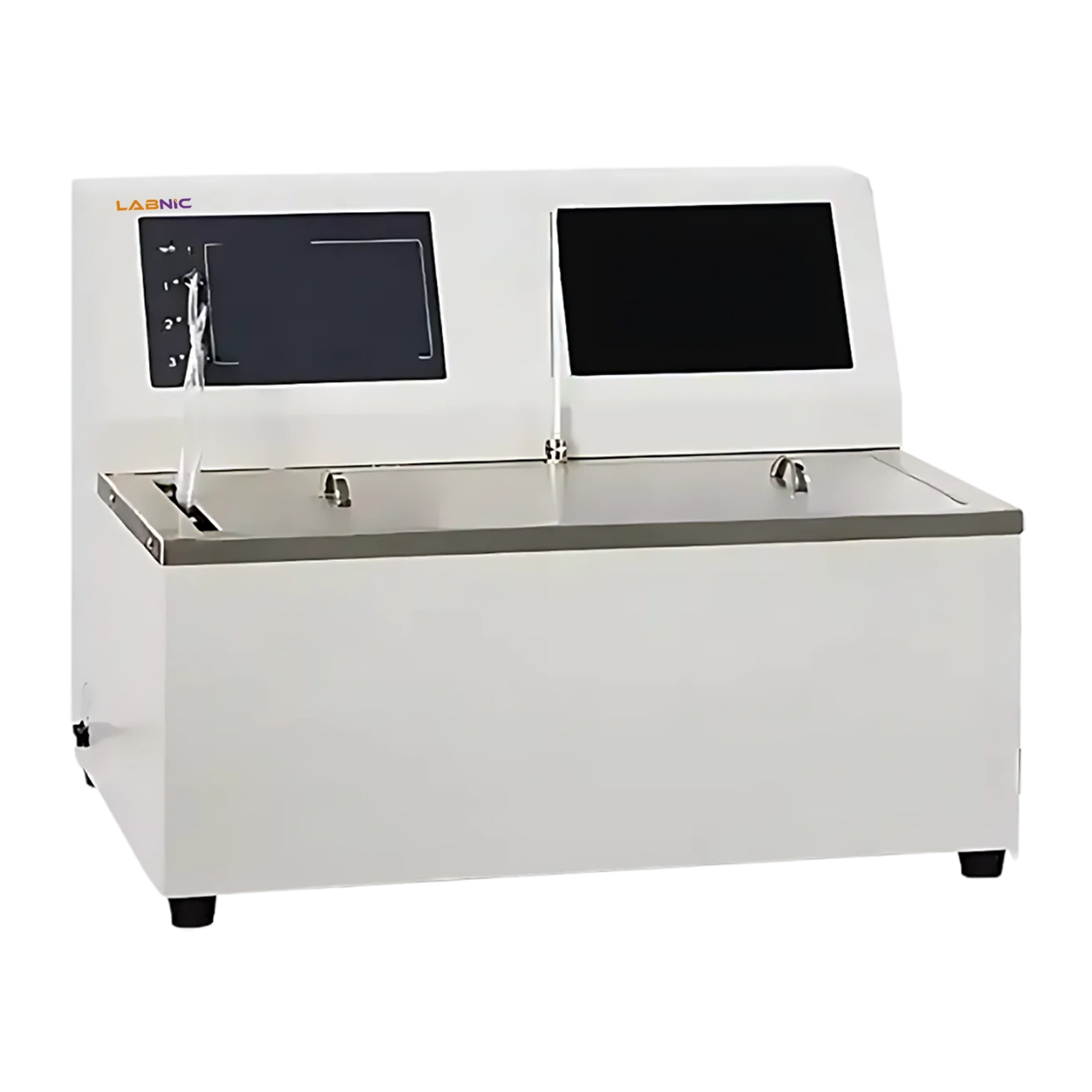
Automatic Vapor Pressure Tester LBN-VP121 measures vapor pressure of volatile petroleum products. It is fully automated and controlled by a PC. Device can detect pressure values ranging from 0 to 200 kPa. Advanced heating technology enhances safety during testing. Accurate test results, good repeatability, and ease of operation are highlighting characteristics of tester.
| Pressure range | 0 to 200 kPa or 0 to 29 psi |
| Ambient temperature | 5 to 35 ℃ |
| Temperature control accuracy | ± 0.1 ℃ |
| Relative humidity | ≤ 85% |
| Water bath temperature | 37.8 ℃ |
| Test bombs | 3 bomb tests at the same time |
| Power supply | AC (220 ± 10%) V, 50 Hz |
| Power | 1600 W |
| Max. power consumption | ≤ 1700 W |
| Dimension | 600 × 500 × 512 mm |
| Weight | 51 Kg |
Automatic Vapor Pressure Tester is a valuable tool for quality control and analysis of volatile petroleum products like gasoline, volatile crude oils, etc.
Automatic Vapor Pressure Tester is a valuable tool for quality control and analysis of volatile petroleum products like gasoline, volatile crude oils, etc.
Most Frequently Asked Questions
1. How does a vapor pressure tester work?
Ans. The tester heats a sample in a sealed chamber and measures the pressure generated as the liquid evaporates. The result indicates the sample’s vapor pressure, which is crucial for safety, storage, and performance evaluations.
2. What industries use vapor pressure testers?
Ans. They are commonly used in the petroleum industry, chemical manufacturing, pharmaceuticals, food processing, and environmental testing to assess product stability and compliance with safety regulations.
3. Why is vapor pressure testing important in fuel analysis?
Ans. It determines the volatility of fuels like gasoline, diesel, and aviation fuels, impacting engine performance, emissions, and safety in transport and storage.
4. How often should a vapor pressure tester be calibrated?
Ans. Regular calibration using certified reference materials is recommended, typically before major testing cycles.
5. What safety precautions should be taken when using a vapor pressure tester?
Ans. Operators should use protective gear, ensure proper ventilation, handle volatile samples with care, and follow equipment safety instructions to prevent accidents.